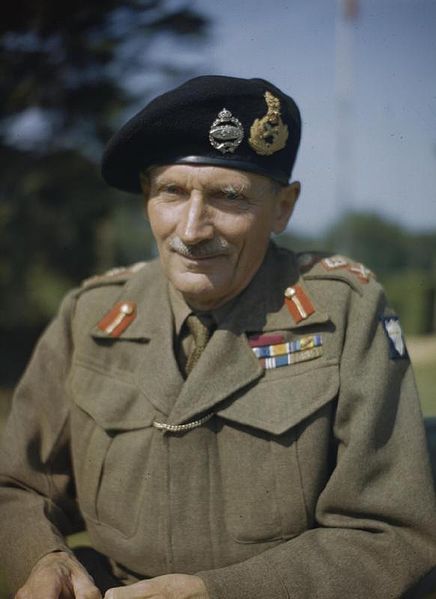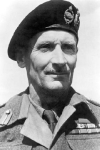I Was There! - I Saw a City Below the Germans' 'West Wall'
The War Illustrated, Volume 8, No. 185, Page 153, July 21, 1944.
Parts of Hitler's Normandy coast defences, boosted in loud propaganda as the impregnable "West Wall", really were amazingly well prepared. Alan Moorehead, for Combined Press, has recorded a day he spent in going through one such area – abandoned in panic at short notice.
I went into about twenty dugouts all concealed under the trees. Here was a complete underground city, the work of two years or more. Wooden steps made of saplings lead you beneath the surface and then you are surrounded by concrete and masonry. Everything was abandoned apparently at five minutes' notice. The mess-room is about eighty feet long by twenty feet. It has a piano, four radio sets, a bar stocked with German Pilsner beer, German gin and whisky and cigars (or the relies thereof). There are several chests full of sports gear – footballs, jerseys and shorts.
Another dugout is a central office with a telephone exchange, table lamps and many cupboards filled with books, papers, forms and all the impedimenta of a lavish pre-war city office. A third dugout contained sides of beef. A fourth had about thirty bicycles and a workshop. A fifth contained officers' sleeping quarters, rigged up with dressing-table, curtains and comfortable beds with sheets.
I went into half a doze store-houses containing tinned pork, fruit and vegetables, thousands of rounds of all kinds of ammunition, signalling sets, flags, clothing, boots, rifles and machine-guns, with all their spare parts. Then there was the kitchen, a sort of dream kitchen with electric boilers and cookers all fitted with elaborate gauges. I came on underground piggeries and stables, fitted with the most modern equipment, underground hangars for tanks and lorries. In the sculleries there was a great butter churn.
At the moment when our assault was launched the Germans were in the act of bundling up parcels to send home to their families. Each parcel contained three pounds of fresh Normandy butter. Above ground there were many more curious end pathetic things. The German officers' dogs were chained at a series of neat wooden kennels. Those that had not died when the battle swept over, lay in a coma of hunger and thirst at their chains. Everywhere roamed German horses, their eyes white with fear at the shelling. Some were still harnessed to their long wooden coffin-like wagons. Others were being ridden by the Tommies. Others, which had broken legs, were being shot by our officers. The very birds in this green and unreal wilderness were lying dead on the ground; others had been winged or crippled by the flying shrapnel.
I watched a group of Tommies kill and cut up a German pig. A little farther on a Sten gunner had bagged two geese. A third group was frying the liver the men had cut from some animal during the battle. This then was a German Regimental Headquarters.
From it a network of trenches fans out. One trench, about eight feet deep, zig-zags down to the sea three miles away. I imagine you could walk for five miles through trenches and pillboxes almost without coming to the surface at all. I leave you to imagine the vast labour and expense sunk in this empty undertaking – years of work and everything lost in a day. The crust was simply not strong enough to hold. We paid for it, of course.
Today I have been by many fresh graves which the French have piled high with Normandy roses in pink and red and white. And yet the officer who commands the Medical Corps on this sector told me in his new tented hospital today that he had catered for very many more casualties than we have had. As for the wounded, they are probably getting better and quicker treatment than they have had before. Penicillin has been issued right down to first-aid posts.
General Montgomery has been here and has given praise in a way I have never known him do before. It must have been pleasant for him to see among our booty a number of British vehicles of the Morris make which the Germans apparently captured at Dunkirk in 1940 and were still using.
Previous and next article from I Was There!
I Was There! - We Carried Canadian Troops to the Beaches
How went the first hours of D-Day? In these personal stories glimpses are give of some of the actions and incidents that made June 6, 1944, memorable as the actual commencement of the greatest comb
I Was There! - A Gale Nearly Wrecked Our Invasion Fleet
How the build-up of our great attack in Normandy was nearly brought to a halt in its third week is told by W. F. Hartin (by arrangement with the Daily Mail). Only superb seamanship by hundreds of youn
Index
Previous article
Our Colonies in the War: No. 11 - The Cameroons
Remembering the days of Teuton misrule that part of the Cameroons which became British after the Germans were defeated there in February 1916 is helping to ensure another defeat for the enemy. Lying b
Next article
I Was There! - A Gale Nearly Wrecked Our Invasion Fleet
How the build-up of our great attack in Normandy was nearly brought to a halt in its third week is told by W. F. Hartin (by arrangement with the Daily Mail). Only superb seamanship by hundreds of youn





